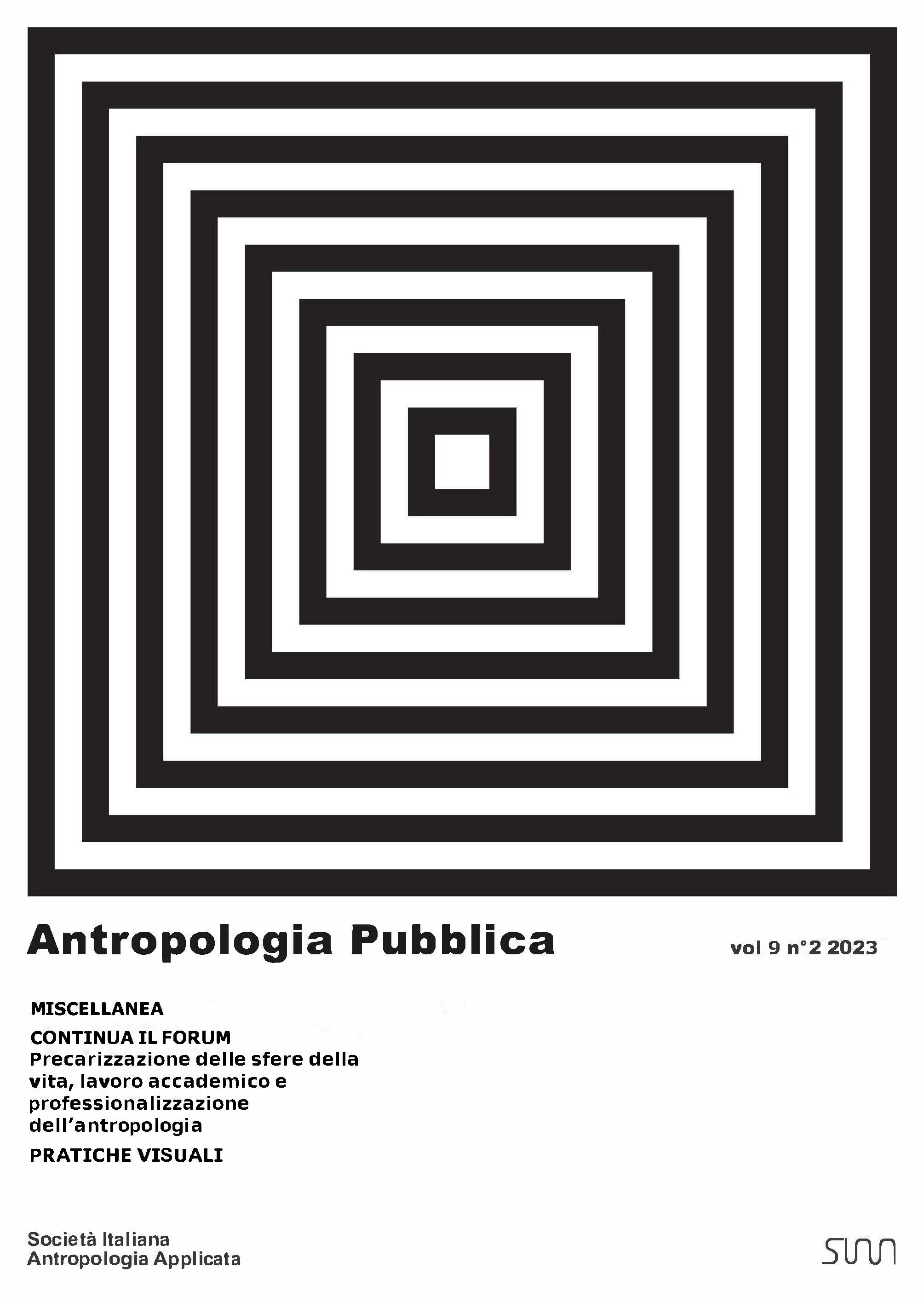“Se tutto è mafia, niente è mafia”. Riflessioni antropologico giuridiche sulla criminalità organizzata nigeriana
Abstract
Starting from a description of the characteristics identified by the Italian legal system for the recognition of the crime of mafia-type association (force of intimidation, associative bond, subjugation and code of silence) as defined by the 416 bis c.p., the contribution aims to produce an ethnography of the documents (Riles 2006; Hull 2012) - such as judgments, DIA reports, intelligence services reports, acts of the Parliamentary Commission - in which the patrimony of information concerning Nigerian organized crime has been untextualized (Cabot 2011). The objective of this hermeneutic analysis is attempts to understand if – and how – stereotypes and prejudices have informed the process of evaluation of behaviors recognized as mafia; is it appropriate to speak of culturalist rationality in this specific case? The proposed reasoning seems necessary because the imaginaries developed towards Nigerian criminal groups appear to be as much a structure as an outcome of the criminalization process mentioned by Wortley (2009). Is it possible to detach the imaginaries referring to the criminal sphere from those existing in society in a general sense?
In other words, is it possible for criminal groups of non-native people to emancipate themselves from the logic of subordinate differential inclusion (Castles 1995; Ambrosini 1999; Mezzadra 2004; Donatiello, Moiso 2017)?


